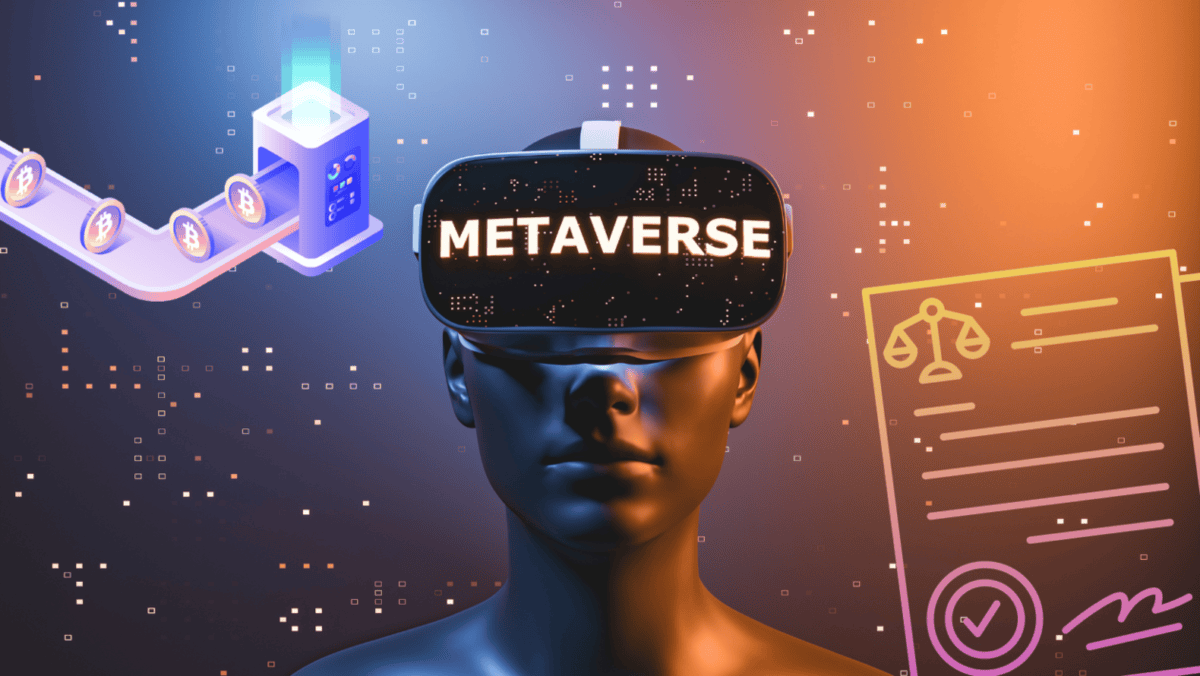The metaverse—a shared, immersive digital world where users can communicate, work, trade, and play—opens new legal boundaries. As more people invest their time, money, and identity in virtual worlds, governance becomes increasingly important. In a borderless world where avatars replace faces and virtual real estate becomes valuable, who makes the rules?
The convergence of technology and law presents both opportunities and challenges for regulators, developers, and users. Many traditional laws are challenged when physical rules no longer apply, from digital property to codes of conduct. As we integrate the metaverse into our daily lives, it is crucial to understand who governs the virtual world. This article explores the growing role of law in the metaverse, its complexities, and its potential impact.
Defining the Metaverse and Jurisdictional Invalidity:
Blockchain, virtual reality, and artificial intelligence power the metaverse—a decentralized 3D digital space. Decentraland, Roblox, and Meta’s Horizon Worlds differ in their immersion and interactivity. What they have in common is an unclear jurisdiction. Unlike countries, the metaverse has no borders, governments, or central authorities that apply laws uniformly. Legal systems based on territorial control suffer from a huge jurisdictional gap. When users in different countries disagree, which country should apply the law? Who is responsible for digital crimes? These questions have not yet been answered unequivocally by lawmakers worldwide. This leaves the metaverse in a legal gray area that is both fascinating and dangerous.
Ownership and Property Rights in the Virtual World:
One of the main legal dilemmas of the metaverse revolves around digital property. Users acquire virtual land, produce NFTs (non-fungible tokens), and exchange digital goods with cryptocurrencies. While blockchain technology transparently records these transactions, the actual legal recognition of such ownership remains unclear. In the real world, property rights are protected by law; in the metaverse, the platform’s terms and conditions govern the use of assets. This means that users can lose everything without legal recourse if the platform changes its policies or goes bankrupt. Furthermore, courts worldwide have not yet reached a consensus on whether virtual assets can be considered real estate. Until the legal system adapts, users in the metaverse digital economy are at risk of loss, fraud, and manipulation.
Privacy and Data Protection Challenges:
Users create digital avatars in the metaverse and interact in real time, generating a wealth of personal and behavioral data. This data includes biometrics, audio recordings, facial expressions, and virtual location tracking. Unfortunately, many platforms collect, store, and use this data without clear regulations or strong security. This allows for privacy breaches, surveillance, and misuse of sensitive data. The EU General Data Protection Regulation (GDPR) and other data protection standards are difficult to implement in a decentralized metaverse system. Unclear privacy rules leave consumers vulnerable to exploitation. Metaverse privacy rules must be updated quickly to protect users as they would in real life.
Virtual Crime and Behavioral Standards:
Virtual crimes, such as harassment, stalking, and sexual abuse, which cause psychological harm, exist in the metaverse. Law enforcement is often powerless due to legal ambiguity and technical limitations. Moderation on social media is easy, but the immersion of the metaverse makes real-time monitoring more difficult. Behavior that is acceptable in one culture may be considered offensive in another, making it difficult to develop universal standards. Platforms have attempted community guidelines and reporting systems, but these are fragmented and rarely enforced as law. Keeping the metaverse safe requires a unified legal framework that clearly defines prohibited behavior and outlines clear consequences.
Intellectual Property in a User-Generated World:
Intellectual property law poses another challenge in the metaverse. Users often create avatars, environments, artwork, music, and virtual companies without knowing who owns the rights. It’s not uncommon for trademarks, fashion brands, and trademarked characters to be copied into virtual creations. Some creators use unauthorized content to sell non-fungible tokens (NFTs). Platform licensing agreements offer limited protection but are often vague and difficult to enforce in court. Enforcement is difficult because intellectual property laws vary from country to country and are rarely uniformly enforced for digital products. Building a creator economy in the metaverse requires stronger protection and enforcement of intellectual property.
Corporations and Platform Governance:
Without government regulation, the builders and administrators of metaverse platforms wield enormous power. They control who joins, what happens, and how disputes are resolved. These companies establish their terms of service, user standards of conduct, and dispute resolution systems to judge their platforms. This can speed up decision-making, but it also raises questions about transparency, accountability, and user rights. Users who disagree with a platform’s judgment or are arbitrarily blocked have few options. The lack of democratic governance models in metaverses can put corporate interests above individual freedoms. These platforms need to be community-driven to create a fair and sustainable digital society.
Legal Harmonization and International Cooperation:
Solving the legal problems of metaverses requires international cooperation and legal harmonization. Because users and developers are spread across the globe, a single government cannot regulate metaverses. The United Nations and the World Economic Forum can help develop legal rules for digital spaces. Definitions of virtual crime, data protection requirements, and dispute resolution processes can be shared. Blockchain-based governance models (such as DAOs) can promote self-regulation by enabling transparent and democratic decision-making. These models need legal legitimacy to work in practice. International legal harmonization is needed to prevent the fragmentation and lawlessness of metaverses.
The Future of Metaverse Law:
As metaverses grow, legal frameworks must evolve to protect users, regulate commerce, and enforce fairness. Governments are taking note and creating rules for digital assets and metaverses. Lawyers are studying how to apply the law in a virtual environment. Technology companies are under pressure to build ethical platforms. We can expect governments, platforms, and users to work together to develop a balanced hybrid regulatory model. These systems must protect user safety, digital rights, and innovation without stifling creativity. The path forward is complex, but it could transform law in the digital age.
Conclusion: Legal Issues in Virtual Worlds:
The metaverse is a legal and technological revolution. As more people use virtual economies, social interactions, and immersive experiences, we need clear, enforceable laws. The laws of the metaverse are not yet fully defined and cover everything from property and privacy to standards of conduct and corporate governance. To ensure the safety, fairness, and sustainability of these virtual environments, politicians, developers, and users must work together to design transparent, fair, and accountable mechanisms. The legal vacuum presents challenges, but also opportunities, to reshape the laws of a transnational digital society. We must recognize that the rules we create now will shape the digital lives of future generations as they explore these boundaries.
FAQs:
1. Can metaverse behavior follow real-world laws?
Sometimes real-world laws apply, especially when virtual activities have real-world implications. However, implementation is often inconsistent due to legal issues and a lack of case law.
2. Who owns virtual assets in the metaverse?
Ownership is often determined by the platform’s terms of service. While users can “own” digital assets like NFTs, legal recognition of such ownership varies and may not hold up in court.
3. What legal protections do metaverse users have?
Currently, there is little protection. Users largely rely on platform policies, but some countries are beginning to develop regulations around data privacy, digital assets, and online behavior.
4. How is crime addressed in the Metaverse?
Crimes like harassment or fraud are difficult to combat in the metaverse. Some networks offer reporting mechanisms, but police involvement is rare and complex.
5. Will future legislation in the metaverse be international?
Certainly. As the metaverse evolves, international bodies can develop uniform rules and regulations to protect users and promote fair digital practices.




